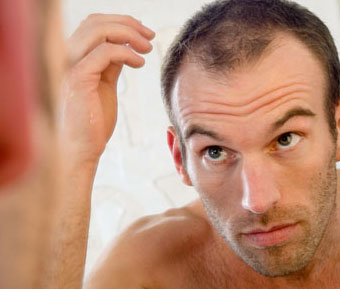It is said that sadness can make your hair go grey; or that stress can make your hair fall out. If you think these are old wives’ tales, think again. There is evidence to show that stress can and does impact hair loss; because the body works as a whole and problems in one area frequently impact other areas of its working negatively. So when they say about someone, grief caused her hair to turn quite white, this may actually be true!
What is the relationship between hair loss and stress?
There is evidence to suggest that physical and mental stress could be responsible for mild to severe hair loss. In some cases, stress could cause handfuls of hair to fall out while combing or shampooing. According to researchers, extreme stress caused by grief, the end of a relationship or some other life altering event could trigger certain physiological processes in the body.
Among other noticeable changes there could be an obvious thinning of the hair since the hair’s growth cycle could be interrupted – more than the usual number of hairs go into the resting phase while the same amount of hair as usual continues to fall out. Usually about 15% of the hair is in the resting phase at any given time. If one is stressed, that percentage could rise; more hair goes into the resting phase and causes noticeable hair thinning.

The fact is that when one is under stress this could make lots of changes in the lifestyle – a person may not be getting enough rest, could be eating unhealthily or irregularly, may have started or stopped some medications. Pregnancy, going on or off a hormone contraceptive also could cause significant physical changes; all these could contribute to in part to the hair loss.
Will it grow back?
The good news about stress related hair loss is that it is usually temporary. The notable effects could last for 6 to 9 months at the most; the hair loss will reverse itself so long as the individual is able to control their stress levels and result their normal lifestyle. For instance a woman who has undergone the stress of a divorce could experience hair fall. But as she gets her like back on an even keel, starts to get control over her emotions, resumes normal eating and resting patterns, her hair loss could spontaneously correct itself. However in some cases, there could be professional help needed to control and bring down stress levels. In this case, a definitive medical diagnosis may be indicated.



